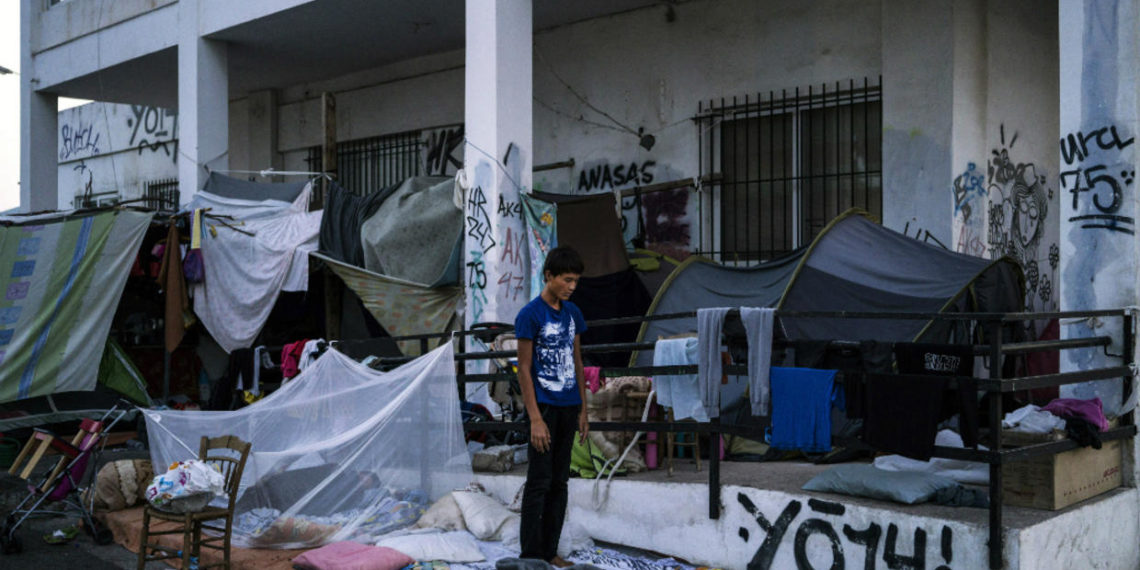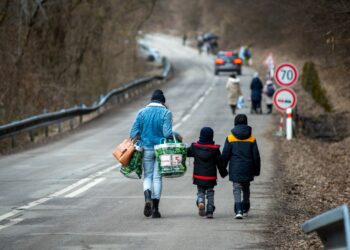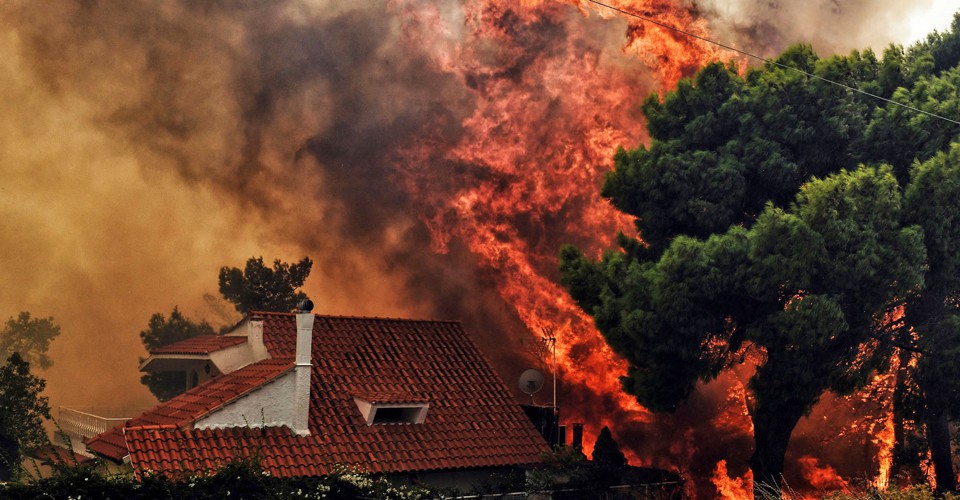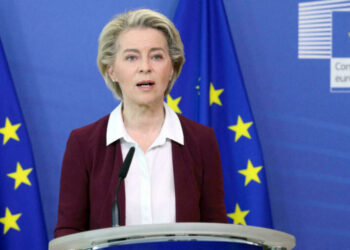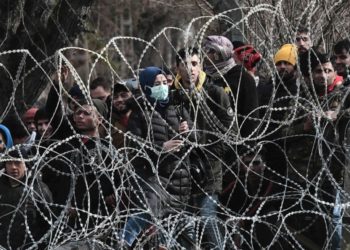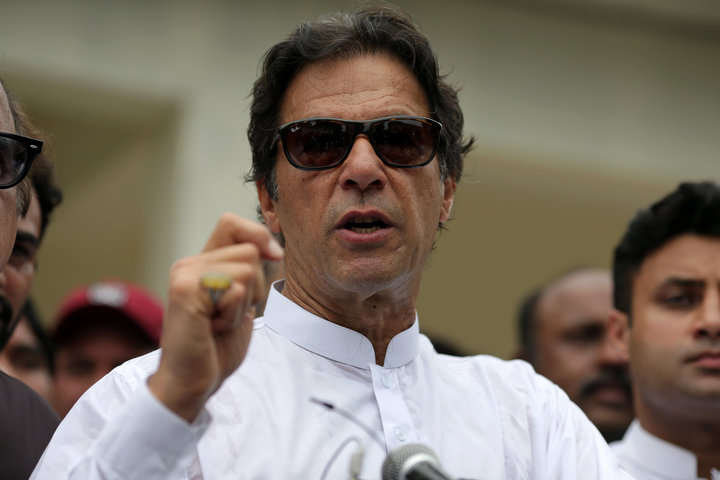The unimaginable horrors that migrants on the Greek islands face have become thoroughly normalized. Only a “Greta Thunberg moment” can alter the script that confines thousands to misery by policy design.
With new arrivals reaching numbers not seen in three years, a depressingly familiar ritual is replaying on the Greek islands of Lesbos, Chios, Samos, Leros, and Kos.
Greek authorities responsible for managing the camps are once again overwhelmed. Last month, a 49-year-old mother, Faride Tajik, was burnt alive in a fire inside Moria camp on Lesbos. Its current population exceeds official capacity by more than 400 percent. Tuesday, on Samos, hundreds of people lost their shelter and belongings when a massive fire swept through the camp.
In the field surrounding VIAL camp on Chios, hundreds of newly arrived refugees are living in flimsy tents and improvised shelters. Some spend their first nights literally on European soil, with nothing more than a blanket. Resembling a dilapidated slum rather than a “reception” center, one could easily forget that just meters away are the offices of international agencies with overlapping remits for guaranteeing the rights of people seeking asylum – UNHCR, International Organization for Migration, the E.U. border agency FRONTEX, along with the Greek and E.U. asylum services.
Burden of EU’s Containment Policy
Humanitarian NGOs have issued their ritual denunciations. Doctors Without Borders has accused the E.U. and Greek authorities of “deliberate neglect” of more than 28,000 people who are forced to live in one of the E.U.-funded “hotspots,” grotesquely overcrowded and unfit for human habitation.
At the same time, journalists from across the world parachute onto the islands to extract testimonies from refugees, many of whom are simply too tired to divulge heart-wrenching accounts of pain and despair – “because nothing will change,” said Rahim*, a Palestinian refugee on Chios.
At best, a few thousand people will be dispersed into remote camps on the mainland from one set of tents to another, a humanitarian non-solution to which Athens recurs in panicked efforts to “decongest” the islands as if refugees are a kind of unwanted mucus to be expelled. Thousands more will continue to bear the burden of the E.U.’s containment policy, abandoned by the outside world if not for the hundreds of grassroots volunteers who continue to fill gaps in the provision of even the most elementary humanitarian care.
With winter looming, there is an eerie sense of déjà vu. The script has been rehearsed since the five islands were transformed into de facto prisons for thousands of people under the March 2016 E.U.-Turkey deal.
Rotten System
Despite levels of suffering that defy belief, the E.U.’s bureaucratic apparatus continues to justify the Turkey deal on spurious humanitarian grounds. “Almost one million people” have been prevented from undertaking “dangerous routes” across the Aegean Sea, the European Commission claims. It even takes credit for “more than 1,000 [people] who have not lost their lives trying.”
Any lingering flaws, E.U. officials insist, lie not in policy design but its implementation by Greek authorities, to whom all moral and legal responsibility for dire conditions is instantly deferred. Against mounting evidence of a system rotten to the core, their myopic belief in the deal is reminiscent of Soviet-bloc apparatchiks who believed that socialist utopia was entirely attainable with stricter observance of doctrine.
Migrant deaths along the Mediterranean Sea route are expected to top 1,000 this year, @UNmigration reports. U.N. officials blame many of the deaths on a hardening attitude toward migrants fleeing violence and poverty. pic.twitter.com/dHNXGrrAln
— NPR (@NPR) October 1, 2019
Meanwhile, in the real world, people fleeing Turkey continue to drown in the Aegean Sea. Children under the age of six are now self-harming in Moria, according to Doctors Without Borders. Last month, camp administrators conceded that they are unable to accommodate any more people. In fact, across all the islands, “camp space ran out many, many hundreds of boats ago,” said Leslie Meral Schick, a long-term volunteer. “The word ‘crisis’ doesn’t adequately define the situation,” she added.
Imposing Suffering as Deterrence Measure
Yet, the only response from top European officials is to desperately plead with Turkish authorities to stem the flow of more refugees coming to Greece. Three years on, claims to ignorance or incompetence no longer explain the E.U.’s unwillingness to abandon the deal.
The only conclusion that can be drawn is that what we are witnessing on the islands is the intentional imposition of suffering as a deterrence measure. The fact that E.U. officials no longer even deny this in private is a testament to how the depravity of Brussels’ approach to migration has become thoroughly normalized.
What’s more, the vision of fast-track asylum procedures – more deportations back to Turkey and militarized border control – mirrors Greece’s new right-wing government’s racist agenda of “dealing” with migration.
The moral implications of this are chilling. But there are practical consequences for those seeking to change the trajectory of E.U. migration policy, too. The traditional approach to bearing witness practiced by humanitarians, whereby politicians are shamed into action by publicly exposing the human costs of their policies, is bound to fail.
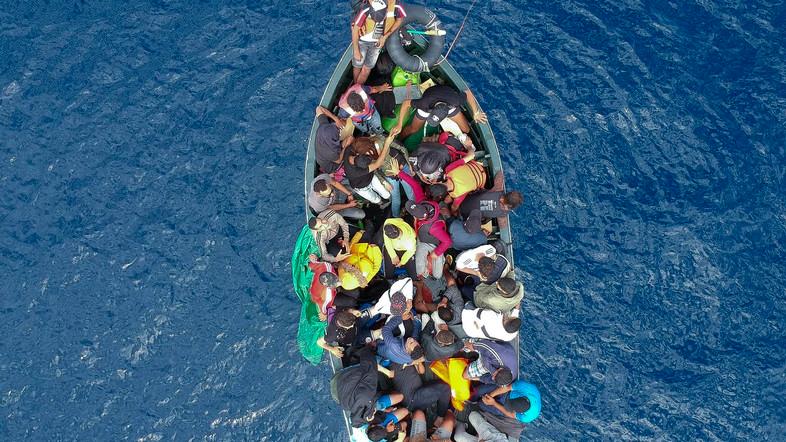
Speaking truth to power is a futile exercise when those who exercise power are fully aware of the horrors they inflict. After all, as one Commission official speaking in private capacity told me, these reports “don’t contain anything they don’t already know.” This explains why continuous efforts by civil society organizations to document the inhumane treatment of refugees and their calls for genuinely sustainable solutions to the crisis barely register in the corridors of power in Athens, Brussels, or other European capitals.
Ultimately, advocacy rooted in subversive civil solidarity and collective mobilization, something akin to a Greta Thunberg moment, is needed to raise consciousness and alter the political script. The architects of the E.U.-Turkey deal have been relying on the passive acquiescence of citizens, in whose name the refugees’ right to a dignified existence continues to be denied.
Rahim’s name has been changed to protect his identity.
Disclaimer: The views and opinions expressed here are those of the author and do not necessarily reflect the editorial position of The Globe Post.

